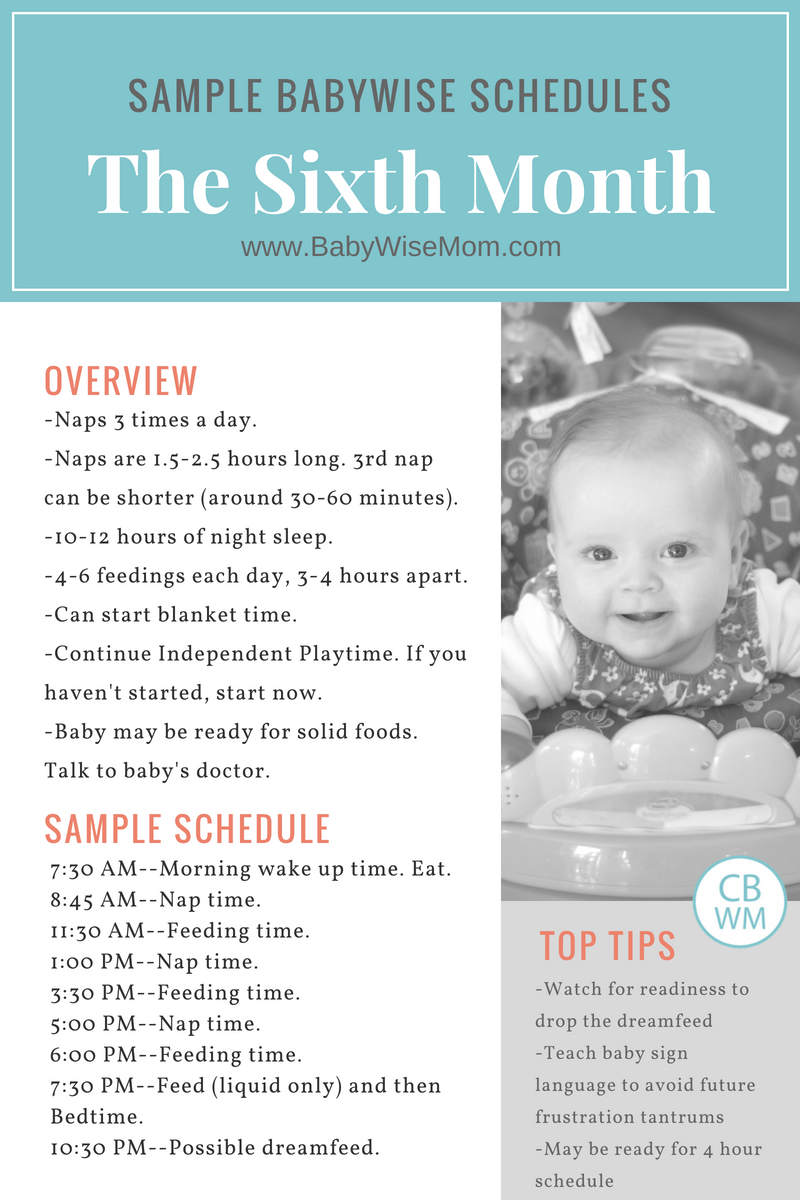

DAILY SCHEDULE FOR 6 MONTH OLD HOW TO
If you haven’t transitioned from three naps to two yet, here are some tips on how to drop the third nap.Īnd finally, your baby could hit a 6 month sleep regression between 6 to 8 months of age. Check out my post on how to stop nursing to sleep, broken down by each age.Īt 7 months old, many babies are ready to transition from 3 to 2 naps. If your baby has grown accustomed to nursing to sleep, don’t worry! I can help you break the feed-to-sleep association. If you’ve managed to avoid making feeding a sleep association by using an eat-play-sleep routine in those earlier months, that’s great! Make sure that you keep your feedings 30 minutes or more from nap and bed time. You’ve also probably introduced solid food, so there’s a lot more feeding time in the day than there used to be. Your baby is much more physically active, playing with toys and working on rolling over or even starting the early stages of crawling.

What is a Good Schedule for a 7-Month-Old?Ĭompared to the early months of their life, there’s a lot more activity to fit into your 7 month old’s days!
DAILY SCHEDULE FOR 6 MONTH OLD WINDOWS
You’ll get sample schedules, and a roadmap for your baby’s wake windows and nap transitions through their first 4 years. Get printable schedules for babies ages Newborn through 4 years old with my Baby Schedule Cheat Sheets.

Want to feel confident understanding wake windows and your baby’s sleep needs at every age and stage? Let’s walk through the most important elements of a 7-month-old sleep schedule and help your family settle into a routine that works for everyone! Feel Confident Tackling your Baby’s Sleep Schedule Who doesn’t love a good routine? I know I thrive on predictability!ħ-month-olds are primed and ready to settle into a daily routine that you can all rely on on for the next handful of months. I love working with 7-month-olds in my sleep training business! They’ve gone through so many exciting milestones, and are really starting to show off their personalities.īabies at this age are able to stay awake longer, show so much personality, may be ready to drop night feeds, and are ready to establish more regular and reliable daily routines.


 0 kommentar(er)
0 kommentar(er)
